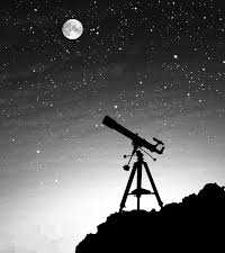On Humility
December 1, 2018Podcast: Download (Duration: 13:00 — 11.9MB)
Subscribe: More
 From Hasidic tradition we have a little story about Rabbi Simcha Bunim Bonhart, who lived in the Polish village of Peshischa at the turn of the 19th century. Read more →
From Hasidic tradition we have a little story about Rabbi Simcha Bunim Bonhart, who lived in the Polish village of Peshischa at the turn of the 19th century. Read more →
You Might Be Wrong
December 1, 2018Podcast: Download (Duration: 12:16 — 11.2MB)
Subscribe: More
 I grew up Catholic, even pondered becoming a nun, and studied theology with awesomely radical social justice Jesuits before following the theological thread of my life right into Unitarian Universalist seminary. Read more →
I grew up Catholic, even pondered becoming a nun, and studied theology with awesomely radical social justice Jesuits before following the theological thread of my life right into Unitarian Universalist seminary. Read more →
Humility and Hubris
December 1, 2018Podcast: Download (Duration: 5:44 — 5.2MB)
Subscribe: More
 My first impulse in trying to describe the essence and practice of humility was simply to say: Look at the current U.S. president and then think about his opposite in personality and behavior—that will pretty well define humility. Read more →
My first impulse in trying to describe the essence and practice of humility was simply to say: Look at the current U.S. president and then think about his opposite in personality and behavior—that will pretty well define humility. Read more →
From Your Minister
December 1, 2018Podcast: Download (Duration: 5:28 — 5.0MB)
Subscribe: More
Perhaps you watched the comedy special on Netflix by Australian comedian Hannah Gadsby, entitled “Nanette.” If you didn’t, perhaps you’ve seen some of the media coverage about it, using words like “game-changing” and “comedic revolution.” Read more →
Positive Change
December 1, 2018Podcast: Download (Duration: 0:31 — 505.7KB)
Subscribe: More
The CLF is deeply committed to serving those who are making positive change in the world. Read more →
REsources for Living
December 1, 2018Podcast: Download (Duration: 5:28 — 5.0MB)
Subscribe: More
What is your favorite Christmas carol? Mine is the English carol “The Friendly Beasts,” which begins: Read more →
Audio Recordings
December 1, 2018Podcast: Download (Duration: 0:13 — 208.3KB)
Subscribe: More
You can listen to audio recordings of Quest Monthly, read back issues or get electronic versions of the text to share with friends (and much more) at questformeaning.org Read more →
Christmas
December 1, 2018Podcast: Download (Duration: 1:18 — 1.2MB)
Subscribe: More
 It was all so complicated:
It was all so complicated:
The questionable parentage,
the awkward journey,
the not knowing where you will sleep, Read more →
Humility
December 1, 2018December 2018
Humility is to make a right estimate of oneself. —Charles H. Spurgeon
Articles
On Humility
Rev. Margaret H. AllenFrom Hasidic tradition we have a little story about Rabbi Simcha Bunim Bonhart, who lived in the Polish village of Peshischa at the turn of the 19th century. Read more »
You Might Be Wrong
Rev. Nancy McDonald LaddI grew up Catholic, even pondered becoming a nun, and studied theology with awesomely radical social justice Jesuits before following the theological thread of my life right into Unitarian Universalist seminary. Read more »
Humility and Hubris
RonMy first impulse in trying to describe the essence and practice of humility was simply to say: Look at the current U.S. president and then think about his opposite in personality and behavior—that will pretty well define humility. Read more »
From Your Minister
Rev. Meg RileyPerhaps you watched the comedy special on Netflix by Australian comedian Hannah Gadsby, entitled “Nanette.” If you didn’t, perhaps you’ve seen some of the media coverage about it, using words like “game-changing” and “comedic revolution.” Read more »
Positive Change
Quest for MeaningThe CLF is deeply committed to serving those who are making positive change in the world. Read more »
REsources for Living
Rev. Dr. Lynn UngarWhat is your favorite Christmas carol? Mine is the English carol “The Friendly Beasts,” which begins… Read more »
Audio Recordings
Quest for MeaningYou can listen to audio recordings of Quest Monthly, read back issues or get electronic versions of the text to share with friends (and much more) at questformeaning.org Read more »
Christmas
Rev. Dr. Lynn UngarIt was all so complicated: The questionable parentage, the awkward journey, the not knowing where you will sleep… Read more »
Humility
Quest for MeaningHumility is to make a right estimate of oneself. —Charles H. Spurgeon Read more »
O Parenting: You Humble Me
July 12, 2013Our Little Bean is starting to stand, ever-so-momentarily, on her own. Meanwhile, our lives careen on with her a central part of them: family trips and visits with friends, work and projects, housekeeping and grocery shopping. Occasionally I am blessed with the help of a babysitter or nanny. And as I introduce that person to our home and our quirks, I can’t help but remember to myself my own thoughts and, yes, judgments about people I have babysat or nannied for in years past. Little things make so much more sense to me now. Realizing the judgments I had made while having not-a-clue what parenting really entailed is humbling. There’s no way to really explain it all to a new person entering into our lives. And all of this is humbling: our messy home, needing someone who is initially a complete stranger to come and help, the intimacy of showing someone all the details of how to care for our child, and remembering my own judgments, now years past.
I remember, for example, being quite struck that one mother I nannied for regularly would go to the grocery store and buy bags and bags of groceries and then bring them home and leave them, still fully packed, sitting on the kitchen floor. I mean: the refrigerator was right there. Those eggs were getting warm, sitting there. But now I’ve done the same multiple times: brought in a load of groceries from the car and left the bags sitting on the kitchen counter or floor while I run to the bathroom, deal with a crying kid, check in with my partner, or, I dunno, take a breath and look at the mail for a second. So many things that used to seem like immediate necessities have taken a backseat. Some days The Babysitter comes and I haven’t made the bed yet. Or had anything to eat. To say nothing of the state of the kitchen floor upon which the baby is probably crawling and picking up little fragments of things she’ll inevitably put into her mouth….
There’re all the subtle realities of parenting and letting-go, too. I know there are hundreds of things, little judgments, I made in my mind before becoming a parent and while observing other parents. “I will never let my kid hang out in a poopy diaper.” “I will never feed my kid processed food.” “I will never get angry and snap at my kid.” Blahblahblah I could come up with a hundred, a thousand more of these little judgmental thoughts I’m sure I had, that I still have. But as we approach the end of year one, I’ve learned a hundred times over that pretty much anything I’ve said “I will never…” about I will, at some point, do. Yet again my tendency towards black-and-white, all-or-nothing ways of looking at things rears its head and reminds me: try for the middle ground. Try for “average,” a mentor told me once, for “mediocre.” Accept my own humanity and imperfectness and get on with things like making dinner and doing the dishes.
I’ve just had the pleasure of delving into a delightful mystery by Louise Penny that was given to my partner and which I totally took over sometime during a recent long, multiple-times-interrupted-by-a-wide-awake-baby night. In this first in the series, Chief Inspector Armand Gamache teaches his trainee the four most important sentences to use in their detective work: “I’m sorry.” “I don’t know.” “I need help.” “I was wrong.” What a beautiful teaching. We could all use these sentences in our lives, and certainly as parents. Every day, as our Little Bean learns a dozen new things, I learn at least a few along with her. And often, it’s that I was wrong about this-or-that, or so arrogant some years (or months, or days) ago. I’m sorry. I was wrong. I pretty much always need help. And there’s so, so much about which I don’t know.
But I am learning, and I am grateful. Holly Near has a song about this that I love the first verse of especially: “I am open, and I am willing, for to be hopeless, would be so strange…” But maybe I’m not telling you anything you didn’t already know? Maybe you knew this song already? Along with Norah Jones “Humble Me”? And so it goes. Thanks for reading.
Support the CLF
Can you give $5 or more to sustain the ministries of the Church of the Larger Fellowship?
If preferred, you can text amount to give to 84-321
Newsletter Signup
About
Quest for Meaning is a program of the Church of the Larger Fellowship (CLF).
As a Unitarian Universalist congregation with no geographical boundary, the CLF creates global spiritual community, rooted in profound love, which cultivates wonder, imagination, and the courage to act.
Contact
Church of the Larger Fellowship Unitarian Universalist (CLFUU)
24 Farnsworth Street
Boston MA 02210




